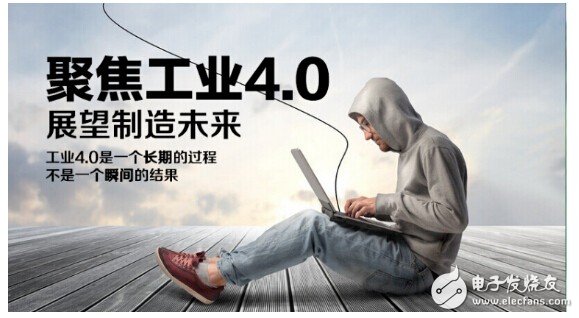Industry 4.0 is now a hot topic, which was proposed by Germany in 2011 and is part of Germany's “National High-Tech Strategyâ€. In fact, Industry 4.0 has a particularly profound background in Germany: According to the German government report, there are two external reasons for Industry 4.0. One is the stimulus brought about by the “re-industrialization†of developed countries such as the United States, and the second is the emerging China-led The rise of the country has made the position of German products on the international market challenging. The internal reason is that Germany is a manufacturing powerhouse and needs to maintain and improve its own advantages. This advantage is reflected in two aspects, one is that the technical level is at a higher level, and the other is an efficient innovation system.
In recent years, Industry 4.0 has been appearing in the Chinese media and has become a phenomenon-level topic. This is similar to the Chinese government’s concept of “Made in China 2025†and “Internet Plusâ€. China and Germany are both big manufacturing countries, and Germany's experience is also of reference to China. But we still have to look at the "Industry 4.0" plan more cautiously, after all, there are differences in many places between the two countries.
Industry 4.0 is a long-term process, not an instant result
In fact, the German Industry 4.0 is still in an initial stage, and there are still many obstacles to its realization. It can only be called a “future visionâ€. Some large multinational companies may have partially realized intelligent production, but there are still some distances for SMEs. This is not only solved by state support. Industry 4.0 is a systematic project. The various entities and various supporting systems in the innovation system must keep up with the awareness of using intelligent digital production. Last year, a survey of German companies by professional organizations showed that many SMEs did not know what Industry 4.0 is.

Don't overstate the significance of Industry 4.0, and don't underestimate China's manufacturing level.
China has already prepared for intelligent and information-based industrial production methods. The “two integrations†that we proposed before have the shadow of “Industry 4.0â€. China's manufacturing industry has developed rapidly in recent years, and it has already crossed the era of producing only low-end manufacturing products. Although there is still a gap between the high-end manufacturing industry and Germany and Japan, in the vertical direction, the level of China's manufacturing industry has already made a qualitative leap than in previous years. Our mid-end mechanical and electrical products occupy an important position in the world. In the past two years, the proportion of mechanical and electrical products in China's exports to Germany has exceeded 40%. China is at least not inferior to Germany in the development of communication technology; in the field of mobile Internet, China has even surpassed Germany. In the field of intelligent manufacturing, local intelligent solution providers like Yixiang Information have also grown up, provoked the spurs of China's intellectual creation, and began to compete with international companies.
It is not necessary to deify Industry 4.0, it is not only the passive choice of Germany but also the inevitable law of the development of manufacturing industry.
Industry 4.0 is not the active choice of the German government. It has two external reasons. One is the stimulus brought about by the “re-industrialization†of developed countries such as the United States, and the rise of emerging countries led by China makes the German products in the international market. The status is challenged. Therefore, the proposal of Industry 4.0 is not entirely a leading embodiment of German manufacturing, but also a response plan forced out by competitors. At the same time, Industry 4.0 was proposed by Germany and developed rapidly. The premise of Germany's manufacturing industry has entered the industrial 3.0 era and is in a leading position. Automation and informatization have been widely used in the manufacturing process. It is not so much a revolutionary change in Industry 4.0. It is an inevitable trend in the development of manufacturing and information technology.
Looking forward to the future of China's manufacturing industry, it is necessary to rely on local enterprises to open up roads with Chinese characteristics according to the status quo of economic development. Industry 4.0 does have some places worthy of reference, but blind blindness and imitation are not desirable.
Qi Charger,Wireless Charger,Wireless Phone Charger,Wireless Charging Station
wzc , https://www.dg-wzc.com